English

Intent
At Cloverlea Primary School we believe that a quality English curriculum should develop a child’s love of reading, writing and discussion. We aim to inspire children’s love of reading so that they read widely and often. Reading enables children to acquire knowledge and to build on what they already know.
At Cloverlea, we recognise the importance of nurturing a culture where children take pride in their writing, can write clearly and accurately and adapt their language and style for a range of contexts.
We want to inspire children to be confident in the art of speaking and listening and who can use discussion to communicate and further their learning.
We believe that children need to develop a secure knowledge-base in English, which follows a clear pathway of progression as they advance through the primary curriculum. We believe that a secure basis in English skills is crucial to a high quality education and will give our children the tools they need to participate fully as a member of society.
Implementation
The Early Years Foundation Stage Framework
The EYFS framework outlines seven areas of learning and development including three prime areas of learning and four specific areas of learning through which the prime areas are strengthend and applied. English in the Early Years is focused on Reading, Writing and the Spoken Language
READING IN EYFS
Reading is cross-curricular and links with the following areas of learning; Communication and Language, Literacy, Expressive Arts and Design and Understanding the World. Reading is split into two main areas; Word Reading and Comprehension. Within this, teachers look at Phonics and Decoding, Common Exception words, Fluency, Understanding and Correcting Inaccuracies, Comparing, Contrasting and Commenting, Words in Context and Authorial Choice, Inference and Prediction, Poetry and Performance and Non-Fiction.
(please see the separate policy on Little Wandle for more information)
WRITING in EYFS
Writing is cross-curricular and links with the following areas of learning; Communication and Language, Physical Development, Literacy and Expressive Arts and Design. Writing is split into four main areas; Spelling, Handwriting, Composition and Vocabulary, Grammar and Punctuation. As a part of this, teachers look at phonics and spelling rules, letter formation, writing and editing, awareness of the audience, sentence construction and tense, phrases and causes, poetry and performance and non-fiction.
(please see the separate policy on Little Wandle for more information)
SPOKEN LANGUAGE IN EYFS
Spoken Language links with the following areas of learning; Communication and Language, Personal, Social and Emotional Development, Understanding of the World and Expressive Arts and Design. When looking at Spoken Language, teachers look at the following; listening skills, following instructions, asking and answering questions, drama, performance and confidence, vocabulary, speaking for a range of purposes and participating in discussion.
The EYFS framework identifies the essential role of play in children’s development. It is through both child-led play and play guided by an adult that a child will develop confidence and relationships with others. Our EYFS Team help a child to extend their vocabulary and develop their communication skills in this way.
Literacy skills in the new EYFS Framework have been adapted to match up with the National Curriculum, ensuring that all children have a good grasp of these areas of learning in preparation for Year 1. Literacy will include a stronger emphasis on pre-reception literacy learning and the link between language comprehension and later reading and writing.
For more information on our EYFS at Cloverlea, please visit our school website here:
https://www.cloverlea.org.uk/early-years/
The National Curriculum
The aims within the National Curriculum are embedded into our daily English lessons and within our wider curriculum. Our English curriculum provides many purposeful opportunities for reading, writing and discussion. Teachers ensure that cross curricular links with topic work are woven into their teaching.
The National curriculum for English aims to ensure that all pupils:
- read easily, fluently and with good understanding
- develop the habit of reading widely and often, for both pleasure and information
- acquire a wide vocabulary, an understanding of grammar and knowledge of linguistic conventions for reading, writing and spoken language
- appreciate our rich and varied literary heritage
- write clearly, accurately and coherently, adapting their language and style in and for a range of contexts, purposes and audiences
- use discussion in order to learn; they should be able to elaborate and explain clearly their understanding and ideas
- are competent in the arts of speaking and listening, making formal presentations, demonstrating to others and participating in debate.
In addition to daily English lessons, the children at Cloverlea enjoy different enhancements such as weekly reading sessions with their reading buddy, visits from the local library and participation in competitions such as World Book Day or designing stories in a shoe box. The children also enjoyed a visit from a local poet, who inspired them with their reading and writing of poetry.
More recently the children have enjoyed a visit from a local author, Sean Perkins and have taken part in the Trafford 500 words writing competition. Our most recent development includes the introduction of reading ambassadors from our Year 6 pupils. Please access the link above for more information.
In Key Stage 1 we use Little Wandle Letters and Sounds Revised as our phonics scheme. Please access the link at the top of this page for more information.
Impact
As a result, we have a community of enthusiastic readers and writers who enjoy showcasing their developing literacy knowledge and skills. They are confident to take risks in their reading and writing, and love to discuss and share their ideas. Our attainment at the end of EYFS, KS1 and KS2 is above Local and National average.
World Book Day celebrations
-
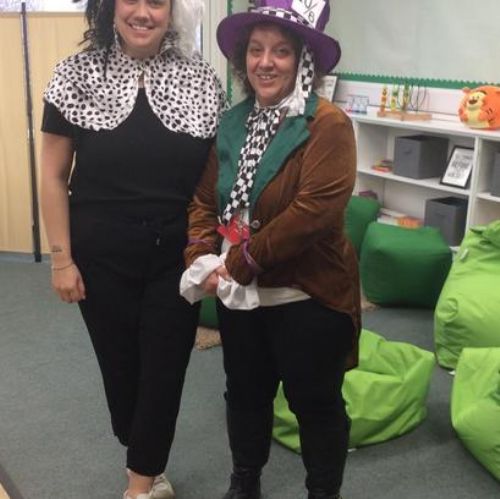
a4c0cf96-9095-4dc8-9ee2-ccdb9489b2b01x1
-
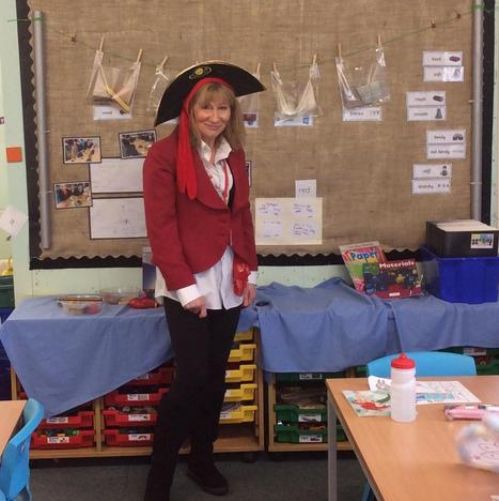
928ac625-474b-48ee-ba88-9957226dbffa1x1
-
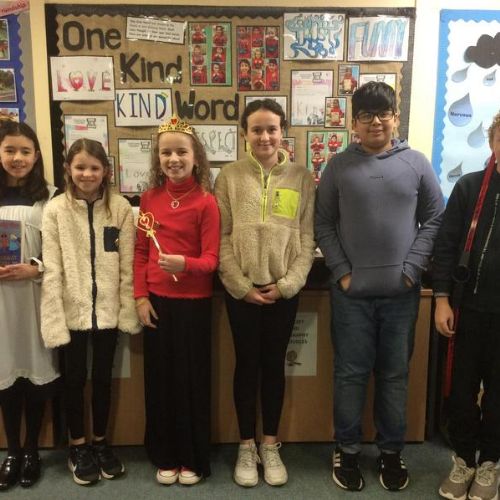
5937a204-e14b-4bde-ba5b-3e640f04467f1x1
-
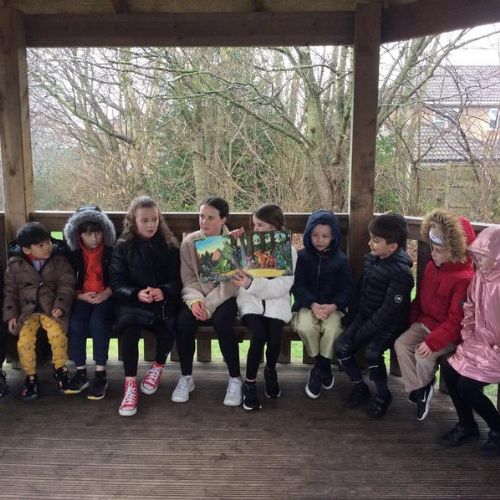
97e234eb-069a-499c-bb45-4a784aba8ecf1x1
-
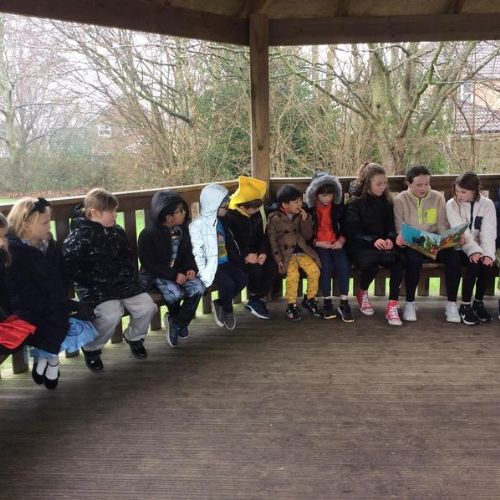
a434ebfe-71cd-4721-93dd-8ef4b47613541x1
-
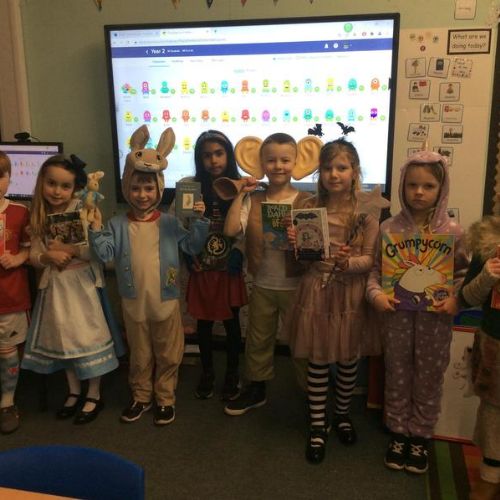
0ede30f9-8047-4c1c-bffa-4b995cc2c16b1x1
-
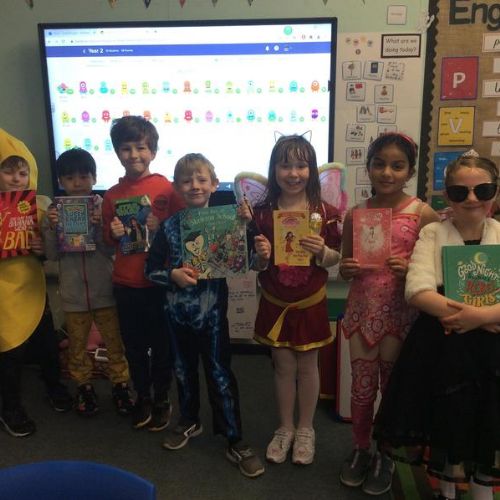
c2d156ea-0eda-413a-8fe5-f8a6ce0c0c3d1x1
-
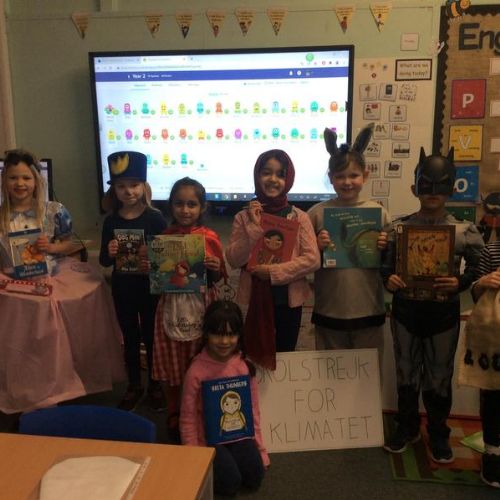
e9f3e2f5-2af9-440d-864b-162c1a2150931x1
-
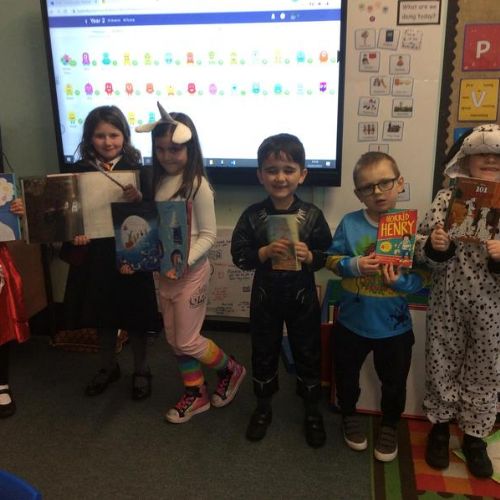
55751ae3-e24e-4862-81e6-3e2fff931c581x1
-
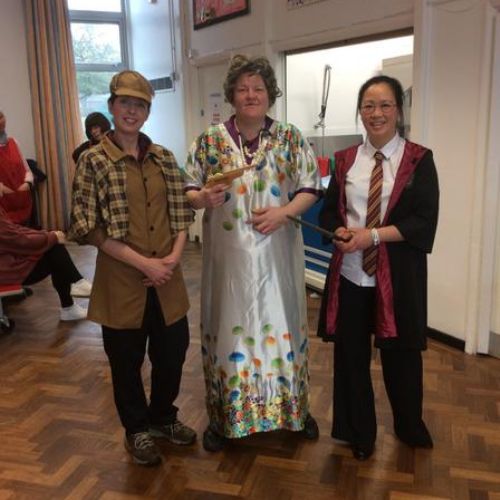
55eaa3a5-f4f9-4a0e-82d1-5e615ffd30781x1
-
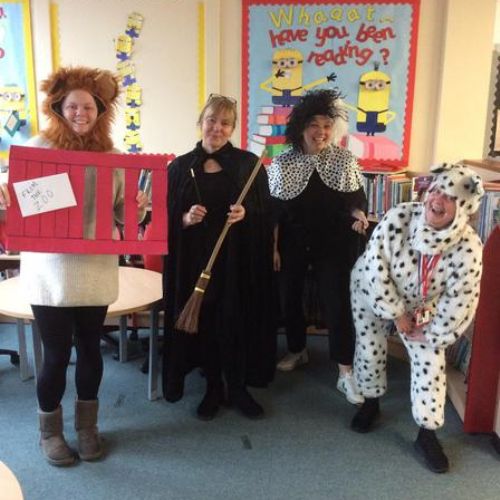
f6bd071a-49ab-42c4-9d27-077770f77b811x1
-
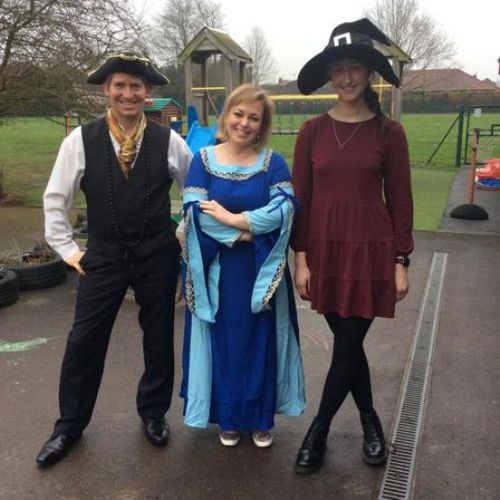
67f09a80-5b00-4463-8d8a-fe3518d473ab1x1
-
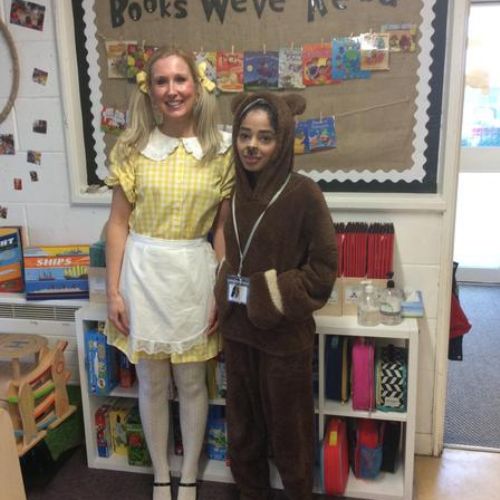
a1d70675-af55-4aa9-bd5d-45a508e9383f1x1
-
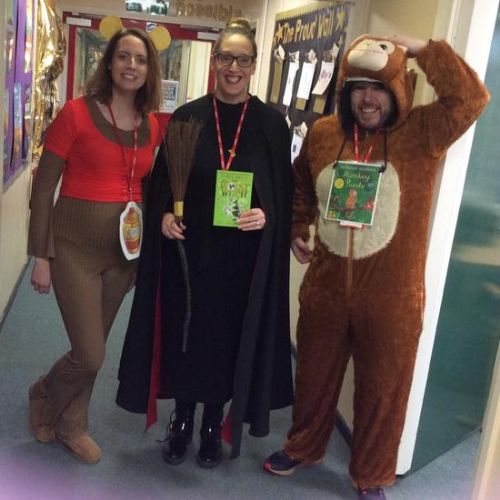
4cd1ffdd-7c89-4e4e-a56e-44636a5dd40f1x1
-
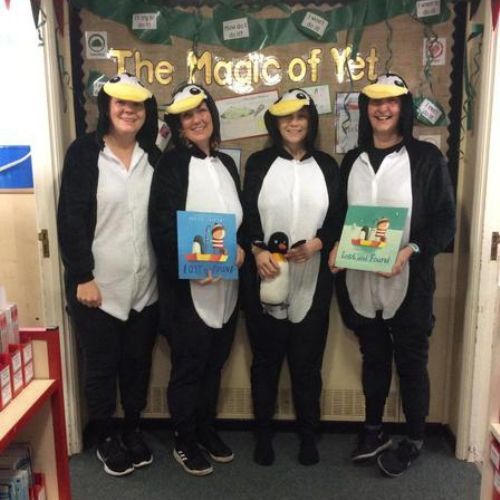
5f045e49-a043-4ab6-9a0e-d7a2bfd8cae41x1
